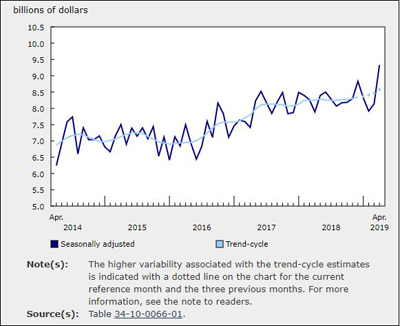Leadership Needs Intelligence

September 18, 2023
By David Gordon, President, Channel Marketing Group
Okay, I’m not saying that company leadership is not “intelligent”, but it does help leadership if it has access to intelligence as in market insights.
While sales can provide some market, and customer-specific, insights, information needs to be aggregated, analyzed and sought from multiple sources in order to identity and evaluate the market to identify opportunities, set (or refine) direction and enable measurement against goals and competitors.
And yes, sometimes market research / intelligence affirms one’s observations, however, by gathering and documenting broader insights (and yes, sometimes having an unbiased 3rd party’s input) helps companies share information internally to gain consensus.
Kevin Coleman has spent over a decade in the industry providing market intelligence. We became acquainted through his participation in our quarterly Pulse of Lighting survey. I asked him to share his thoughts on the need, and process, for market intelligence.
Why (Good) Market Insights and Market Intelligence Is Needed Now More Than Ever
During times of slowing growth and industry disruption, companies of all sizes in all parts of the electrical industry ecosystem need to be able to uncover growth opportunities. Related questions such as
- What warning flags do we need to be aware of?
- What segments of the market are growing vs declining and how do we properly position for each?
- Where can we improve our operations to become more efficient to grow profitably?
- Where can we gain competitive advantages?
can be revealed by a systematic market intelligence effort.
There are many definitions of market intelligence, and one of the more useful perspectives can be drawn from the classic intelligence cycle where leaders establish requirements, information is collected, organized and evaluated for relevancy, credibility, and accuracy, then analyzed and evaluated. Next, the information is integrated with other information and interpreted for insights and meaning. In the final stage the insights, conclusions, and recommendations are communicated. Feedback is provided, decisions are made, and new requirements emerge, and the cycle continues.
The reality is that often managers do not know what they need or have a myopic view of needs based on their experiences and what has worked in the past. This is where market intelligence analysts and resources can overcome those biases and add value by providing the best information available for decision-makers to consider.
This iterative process allows organizations to gather, analyze and transform data about customers, the macro-economic environment the business operates in (a useful framework is PESTLE– political, economic, social, and technological factors), and competitors. This can be more challenging in the electrical industry where there is limited “pre-packaged”, reliable, information sources and much information needs to be deduced, or primary research needs to be conducted. And sometimes it is an aggregation of marketplace insights (industry participant feedback).
It is crucial for organizations to have an effective intelligence capability to gain insights and provide leadership with the ability to make more informed decisions. And have confidence in their decisions. Software advancements in the collection and analytical phases can accelerate the process and free time for deeper analysis. The effective utilization of business intelligence in areas such as product launches, understanding customers, marketing campaigns, and acquisitions, can lead to substantial benefits and on rare occasions, help leapfrog competitors and even create new markets. A classic example of this was Philips Lighting launching the hue lamp for consumer markets, effectively creating a new lighting category.
Make it a Process
Market intelligence should be a systematic and ongoing effort, with constant feedback of what is working (or not), and continuous recalibrations. The goal should be continuous market insights to drive continuous improvement. Vast sums have been spent by governments on improving collection (satellites, reconnaissance), fusing many pieces of data (imaging and sensing platforms and computing technologies for examples) and monitoring competitors. While the scale of what the government does is not practical or necessary in business, the principles and steps certainly are and can be a differentiator for firms of all sizes that effectively employ these methods.
There needs to be discipline around each of these stages – for the data collection phase, a variety of internal and external sources are available. For the electrical industry, key sources can include:
- multiple web-based news aggregators and sources providing a constant flow of events such as earnings, new products, profiles, and other articles,
- a wealth of insights on the nonresidential and residential construction markets
- industry surveys such as Channel Marketing Group’s Pulse of Lighting which shares quarterly lighting insights,
- syndicated information from specialized analyst firms and others,
- market research surveys of customers and industry participants
- trade association data from NEMA,
- industry economic data from DISC, and
- point of sale trackers from organizations such as Epicor, Nielsen and Circana/NPD. The data needs to be updated, accurate, high quality and accessible.
A good amount of these can be tapped into at no cost, while others require investment, however, it is cheaper to understand (or learn the market) than to make mistakes.
Now what to do with the data?
The main objective of the interpretation phase is to leverage the data, to slice and dice it, to gain further insights. Many analytical techniques and tools are emerging to extract the most insights out of the data – cleansing, transforming, and correlating the data, while leveraging statistical methods and algorithms to identify patterns and trends.
The analytical stage allows different datasets to be merged, assists in tracking KPIs in real time, measures progress and success, and gains a deep understanding of customers’ needs, while making the business stronger. It also helps to analyze past and present data and can become the foundation to forecast future scenarios using predictive analysis.
Market insights are the product of the market intelligence process – what is all of this telling us? What could we do, what opportunities are achievable? Once the insights are generated, the product or marketing experts can target their work towards tangible goals – be it a new product, the targeting of a new or a specific segment of the market.
Finally, the communication, or dissemination, phase. On the one-hand, technology has democratized the access to data and many layers and functions in the organization can collaborate and access the data to gain insights for their own work processes, but communicating key insights to leadership remains the core responsibility of the market intelligence role. Findings need to be summarized and presented regularly, and of course as driven by events. And key insights should be integrated into the planning process.
Conclusion
A strong case can be made that, in the current environment of rapid change, technological disruptions and shifting customer buying behavior, the need for sound market intelligence focusing on customer needs should be at a premium. Listening to the voice of the customer (VOC) is critical to developing insights and points of differentiation to identify pockets of growth. When traditional markets are under pressure, the search for growth must be systematic and deep. Opportunities may not be obvious and may require piecing together seemingly unrelated pieces of data to draw insights and test hypotheses. Market intelligence, providing insights, can provide that competitive edge.
Kevin Coleman has over 30 years of experience in multiple industries conducting, creating and leading market intelligence teams delivering insights to leadership and informing strategic decisions. He most recently spent 10+ years capturing information and delivering data in the electrical (or lighting) industry.
Takeways
- Market intelligence is more than market research as it combines the gathering of internal information (hence analytics) in helping set a company’s direction and monitoring performance.
- While the process may seem “daunting”, and in large companies can be a full-time role and/or department with a reasonable budget due to access to services, there are ways for almost every company to have access to some types of market intelligence. The key is identifying what you need and when you need it … and some, if not much, can be outsourced.
- While Kevin mentioned some subscription services, especially for data (DISC and Epicor Data Analytics are specific to the electrical industry … and if you have questions on them, I can share contact names or give me a call and I can share an overview), remember, other techniques for gathering insights include customer satisfaction surveys (especially for distributors), Voice of Customer research, Rep 360, identifying market size and share, customer advisory councils, branch councils, “market research” to gather product insights, customer interviewing, and more … all services of Channel Marketing Group.
- And sometimes it’s just reaching out to ask a question or gather input … and feel free to do so (and yes, I have clients who retain us for this also, hence we can provide additional focus / input.
Market intelligence makes you, and your company, smarter and helps provide additional input to help you set, and monitor, your direction so that you can achieve your goals











